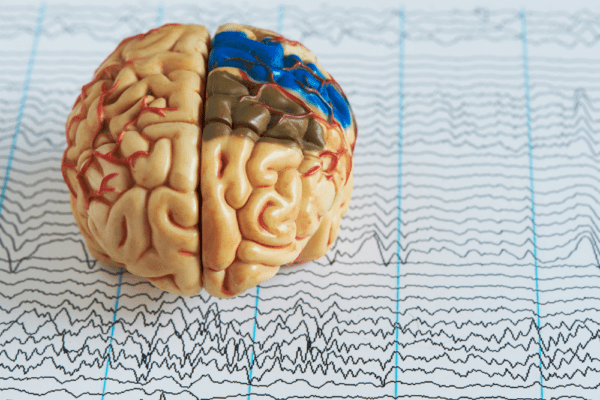It is known that stress can cause many psychological and physical dysfunctions. Negative stress can lead to emotional problems such as depression, loss of productivity, anxiety, and other forms of worry; and also cause physical symptoms like headaches, upset stomach, chest pain and high blood pressure. One of the more ways that stress manifests itself is through exacerbating inflammatory bowel disease [IBD] symptoms, especially Ulcerative Colitis’ (UC).
Ulcerative Colitis is an inflammatory bowel disease and an autoimmune disorder, that affects the large intestine. It is a type of IBD wherein the lining of the large intestine (colon) becomes inflamed when the body’s immune system starts attacking healthy cells in the colon. This inflammation in the colon leads to ulcerative colitis (UC).
A stressful event or stress, in general, provokes a similar response. Stress is one of the factors that contribute to a colitis flare-up.
How Stress can trigger UC
It is important to first understand that stress does not cause IBD and is only considered as one of the environmental factors suspected of triggering symptom flare-ups of UC in some people.
Studies show that many people with IBD feel that stress worsens their symptoms. Severe chronic stress can lead to increased inflammation if you have ulcerative colitis. Your body deals with stressful events by kicking into a “fight-or-flight” response. During this response, a few things take place in your system:
- your body releases a stress hormone called cortisol
- your blood pressure and heart rate increase
- your body increases its production of adrenaline, which gives you energy
This response also stimulates your immune system and leads to increased inflammation throughout your body, including your colon. In people whose UC is in remission, this sets the stage for the return of their symptoms, known as a flare-up.
The sympathetic nervous system, which jumps into action during times of stress, acts on the lining of the colon, and exacerbate existing inflammation. There is also evidence that stress hormones may help harmful bacteria take up residence in the intestines, which might, in turn, affect symptoms.
Symptoms of Ulcerative Colitis
The exact cause of ulcerative colitis is unknown, but some people have a greater risk of developing this condition. This includes people under the age of 30 or people who are of late middle age and people with a family history of ulcerative colitis.
Symptoms for UC include:
- Abdominal pain or cramping
- Diarrhea or rectal bleeding
- Fatigue
- Loss of appetite
- Mild fever
- Weight loss
Other symptoms in some people also include joint pain, redness and swelling of the area, and liver problems. Other factors that may contribute to the development of ulcerative colitis include genetics, environmental factors, smoking, and psychological stress.
Managing stress and ulcerative colitis
Treatment for ulcerative colitis mainly consists of taking medication to relieve inflammation. And while dealing with stress is not a substitute for medication, learning better ways of managing stress can help stave off flare-ups.
Here’s how to find relief from uncomfortable flare-ups that come with the disease.
Practice Yoga
Yoga, a mind-body practice that combines breathing and stretching to induce relaxation, can help relieve symptoms of UC. Practicing yoga on a regular basis to lower your stress levels would not only deflect the discomfort from flare ups, it also largely improves the quality of life.
Meditate and take deep breaths to calm your gut
Many health experts believe that indulging in meditation or even taking time out to do some slow deep breathes can help reduce ulcerative colitis gut pain and cramping.
Deep breathing elicits a parasympathetic relaxation response that physiologically helps the body relax by increasing blood flow and oxygen to the gut.
Move your body
Exercise prompts an anti-inflammatory effect. Moderate exercise is beneficial for people with IBD as physical activity can improve fatigue and some disease activity.
However, refrain from doing intense exercises or strenuous activity, as that can exacerbate inflammatory symptoms, rather than helping them to calm down.
Sleep Better
Few studies have shown that people with insomnia had worse UC symptoms than those without the sleep disorder. Adopting good sleeping habits can help your body to relax and reset and also decrease your stress and lower your risk of a UC flare.
Create a circle of support
Disease-specific support groups can be emotional lifesavers. Find out support groups in your community or even on online platforms for people with UC or IBD. Support groups give you a chance to talk to others with the same concerns and issues.
Attend meetings and select which support group best fits your needs and concerns.
If you feel that stress is a trigger of your symptoms, talking with your doctors about it can also be beneficial.




